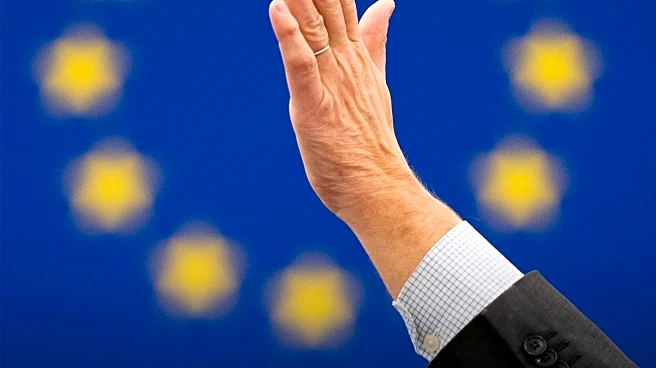What is the story about?
What's Happening?
The European Union has proposed a new LGBTIQ+ Equality Strategy for 2026-2030, which includes allowing children to legally choose their gender at any age without requiring medical checks or therapeutic assessments. The strategy aims to support legal gender recognition procedures based on self-determination, free from age restrictions. The proposal also suggests banning 'talking therapy' intended to confirm a child's decision about gender change. Currently, only nine of the EU's 27 member states allow self-identification without medical hurdles, while twelve require expert input.
Why It's Important?
This proposal represents a significant shift in gender identity policies within the EU, potentially impacting societal norms and legal frameworks across member states. By removing age restrictions and medical requirements, the strategy seeks to promote inclusivity and self-determination for individuals, particularly minors. However, it has sparked controversy, with critics arguing that it could undermine safeguards for vulnerable children and affect women's rights. The proposal's emphasis on self-identification aligns with broader efforts to combat discrimination and promote equality, but it also raises concerns about the implications for healthcare and legal systems.
What's Next?
The proposal is not yet binding and requires approval and implementation by national governments. The EU is conducting an open consultation to gather feedback from citizens, NGOs, and governments. If adopted, member states will need to adjust their legal frameworks to accommodate the new strategy, potentially leading to debates and negotiations over its implementation. The strategy could influence similar policies in other regions, prompting discussions on gender identity and rights at an international level.
Beyond the Headlines
The proposal highlights the ongoing debate over gender identity and the balance between individual rights and societal norms. It raises ethical questions about the role of medical professionals in gender recognition and the potential impact on children's development. The strategy's focus on self-identification without age limits challenges traditional views on gender and could lead to broader cultural shifts within the EU.
















